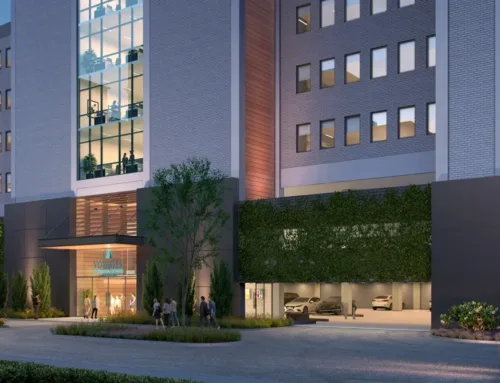Over the past several days, East Dallas has become ground zero for the first Ebola cases ever seen in the United States while West Africa is seeing the largest outbreak on record.
Ominous images in the local and national media depict figures in full hazmat gear disinfecting our neighborhood apartments exposed to the deadly virus. On Thursday, the Dallas County Commissioners Court will discuss whether to request a declaration of emergency from Gov. Rick Perry.
But when a panel of medical experts gathered tonight at the Lakewood Theater to present important facts and dispel rumors in the first public town-hall meeting of its kind, there were a lot of empty seats. Next door, the patios of Mi Cocina and The Balcony Club were filled to capacity with people enjoying a weeknight out.
Granted, unless you were tuned into WFAA on Wednesday, or checked our website, there wasn’t much publicity on the meeting. In fact, even our East Dallas Councilman Philip Kingston called us asking for information just a couple of hours before the event.
Perhaps that says something about the level of fear and/or information flow in our neighborhood.
Nonetheless, WFAA’s “FactNotFear” forum yielded some important details about the Ebola situation in Dallas and as the event progressed more people trickled in, almost filling the theater. Many were from the medical community.
You can watch the entire broadcast here, which included Dr. Richard Besser, ABC News’ chief health and medical editor and the former director of the American Center for Disease Control and Prevention. (You also can find the video at the end of this post)
Here’s some of what we learned:
Neighbors in the M Streets and the Village apartments — the homes of the two nurses now infected with Ebola — have watched hazmat crews take extreme caution in cleaning the apartments. How do we know it’s safe to visit the Neighborhood Walmart on Lower Greenville or the nearest Starbucks or even ride the bus?
Panelist Dr. John Carlo, the former medical director of Dallas County Health and Human Services and an expert on infectious diseases, stresses, “The environmental risk is none.” He, along with other experts, says the risk comes into play when you touch a symptomatic Ebola patient, usually in the final stages.
Both of the East Dallas nurses who contracted the disease — Nina Pham and Amber Vinson — cared for Thomas Eric Duncan in the Intensive Care Unit during the last three days of his life, when the virus was at its worst. That helps explain why Duncan’s family members, or those sitting next to him in the ER, haven’t become infected.
Now that Ebola is here in Dallas, who is most at risk for contracting the virus?
Panelist Dr. Robert Haley, an epidemiologist who has worked with the CDC for 10 years and has been studying Ebola for 40 years, says three types of people are at risk: 1) The friends and family members who came in close contact with the patient 2) The doctors and nurses who cared for the patient 3) and anyone who handles the body of a person who died of the virus.
Although there still are questions about what went wrong in the process that caused the nurses to contract the disease, it’s clear that the general public is not at risk.
“You just don’t want to touch an Ebola patient who is very sick,” Haley says. “That we know.”
What happens when an Ebola patient is cured?
There is no Ebola relapse. In fact, survivors of Ebola are immune to the disease, which is why Dr. Kent Brantly is donating blood to Pham, and health officials hope to mobilize others like him in the fight against the virus in West Africa.
Watch the entire broadcast for much more detailed discussion on other questions, including concerns from the nursing community, what Texas Health Presbyterian did right or wrong, and the possibility of an Ebola vaccine.







